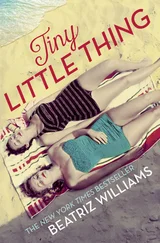The following night, Nuri made it easy for us. He set off for the red light district with two friends but parted from them on the way and went to the prostitute we’d seen him with on the first evening. We positioned ourselves around her small den of iniquity and planned our precise exit route as well as our responses to potential incidents. We had two vehicles at our disposal to be used to block any car chase after us, and a motorbike to make our getaway. Levanon and I sat in Motti’s car about ten metres from the entrance to the apartment of Nuri’s favourite whore. Yoni, a skilled biker who had joined the team recently, waited for me in a nearby alleyway.
As soon as Nuri was spotted leaving, I got out of the car and walked towards him. Levanon was a few steps behind me. From his car, parked on the street corner, Udi could see the entire area of the operation. He signalled to us that we could go ahead and added an unplanned movement of the hand that told us, calmly, guys, there’s time.
Nuri, it seems, heard our footsteps, glanced back once in our direction, turned round and continued walking away. In line with the night drill, I fired three shots into his back. He fell to the ground like a doll whose strings had been detached. I went close up to fire the two additional bullets at his nape, but, as I looked down at the crumpled figure at my feet and wondered whether it wasn’t enough for him to be immobilized and dying, I heard two shots being fired from right next to me. Once again Levanon had completed the job.
In the open air, the sound of the shots was fuzzier than it had been in the hotel room. I got onto the bike and Yoni sped away. Levanon returned to the car in measured steps, Motti turned on the engine and they were off. Udi brought up the rear of the convoy, driving slowly and preventing any possibility of us being chased as we drove through the narrow, dark alleys.
During the flight to Zurich I went to sit with Levanon who, once more, looked as if he had just signed a million-dollar contract; animated, smiling, lightheartedly flirting with the stewardess. Afterwards he told me that when I’d fired the first round I looked at the fallen man and blurted ‘stinking Arab’. He’d assumed that this closed my account with the target and intervened.
I was surprised. I didn’t remember saying such a thing and indeed have nothing against Arabs. Against an Arab terrorist–yes, of course. But the same goes for a terrorist of any other nationality. I realized that my frustration at not having been able to get home in time was greater than I had thought.
For his part, Levanon began to believe that I was not capable of killing somebody in cold blood. Not when the dying man is lying helplessly in front of me. I didn’t think he was right, at least not yet.
The telephone call–made by the people from the psychological warfare department the moment that Udi reported back to HQ on the mission–had the local police scurrying to the scene with information that ‘the Arabs who shot their friend’ are hiding in the apartment of some other whores in the area. The efficient Seoul police immediately closed off the district, and two of Nuri’s partners were arrested together with some other innocent Arabs looking for sexual relief among the city’s less pious women.
Further phone calls that linked the murder to struggles within the terror group sent the police to the Mosque, where the truck bomb was found in a small garage in the basement. With the truck’s seizure almost everybody involved in the terrorist attack was arrested.
When I got home again I found Orit angry. Once more she didn’t ask me anything about my activities abroad. She didn’t even ask where I’d been, and I didn’t volunteer the information. The first reports of a Lebanese who’d been found dead at the entrance to a brothel in Seoul didn’t attract any attention despite the assessment of informed journalists that the man was a Hezbollah activist. Very surprisingly, reports of the discovery of a car bomb in a Mosque didn’t make the headlines. The Korean authorities had their own reasons for playing down the matter and in Israel nobody wanted to be ‘too well informed’ so as to avoid divulging our involvement.
Nonetheless, I wondered whether Orit didn’t know or simply didn’t want to know. Didn’t want to know anything about my activities, or didn’t want to know that I’d been in a place where, as she saw it, we had committed a murder. I knew that my silence was costing us dearly. I could feel the distance I was creating between us because of my fear that intimacy might lure me into saying something. But this transparent and malleable ‘glass’ barrier I had erected between us turned into a hermetically sealed double glazed booth when Orit also shut herself off, avoiding all intimacy in case it uncovered the things she didn’t want to know about.
WE BOTH TURNED thirty. For me the round number was nothing more than a clichéd excuse for soul-searching. All in all I was content with where I was in my life albeit not so at ease about the direction in which I was heading. I knew that I was doing important work, but I was well aware of the price I was paying and there was no sign of things improving. I’d never been a careerist and my operational successes didn’t seem to me to be a launching pad for promotion to head of a department.
But for Orit the date was a moment of crisis. She was an introverted woman who controlled her emotions in the same way as she controlled her still supple and youthful body. Only her womb refused to be controlled and her worries kept on multiplying.
One evening, after celebrating her birthday in a restaurant on the way to Eilat with both sets of worried parents, we were again sitting in our Jerusalem apartment. On the big computer screen in the sitting room were drawings of a new house that she had planned. Orit used to bring work home to fill her evenings of solitude and went on doing this even when I was there.
It cannot go on like this. We’ll have to do something more drastic about it, Orit said.
We hardly ever quarrelled. Even our most sensitive conversations were held without raised voices, without drama, without tears. But lately, an element of estrangement and pain had crept in. This time we were snuggled up on the sofa about to watch a movie. Some kind of unconscious suicidal urge had driven me to bring home a library copy of the movie Crying Freeman about an assassin who sheds tears of regret each time he kills.
Thirty is not a critical age, she agreed with me. But if this goes on, we’ll have a problem when it comes to our second child. We know it’s not clear where the problem lies. The tests on both of us were fine, but time won’t be on my side for long, one day there will be the question of my age. We can give it more time, even as much as a year or two, but if I still haven’t become pregnant by then, we’ll have to think about artificial insemination.
I turned off the TV and hugged her. My Orit. We’d been together since we were fifteen, half our lives. I knew this woman inside out, as she knew me. We wanted each other, we wanted to live together for the rest of our lives and now a maddening and mysterious stumbling block was denying us from getting what virtually every couple in the world takes for granted.
The words ‘it’s not clear where the problem lies’ suddenly hit home. Is it conceivable that in addition to my absences and Orit’s anxiety, the lie I harboured was preventing me from surrendering myself to our love? Could it be that the body has some concealed mechanism that says, from this mating, under these circumstances, nothing good will come?
I pushed the thought out of my mind. It didn’t suit a rational man like me.
Читать дальше












